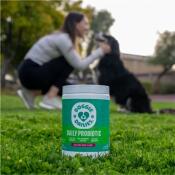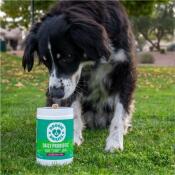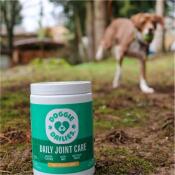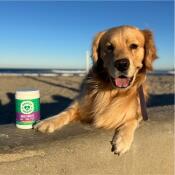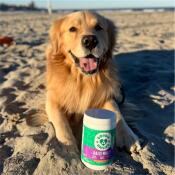Many foods and seasonings contain nutrients that can help to prevent or control chronic inflammation in dogs. This approach can prove safer and gentler than a heavy reliance on medications (which can produce unwanted side effects or interact with other prescription drugs).
Food allergy-based inflammation may recede after your pet switches to a hypoallergenic diet. For instance, if your dog has allergies to the proteins commonly found in commercial food products, he may do much better with a diet that relies on less common protein combinations such as eggs and rice, duck and peas, or fish and potatoes. Seasonings such as cinnamon and turmeric can also help control chronic inflammation.
Omega-3 fatty acids are a major ally in the fight against canine inflammation. These fatty acids — commonly found in salmon, anchovies, sardines, and other fatty fish — also come in fish oil supplement form. Omega-3 supplementation makes it easy to ensure that your dog gets enough of these fatty acids regularly, even if he doesn’t like fish.
Joint issues can start very small and overtime become serious. With the increase severity comes increased inflammation. Nutrients that help reduce inflammation, like omega fatty acids, are critical for treating the body's response. Additionally, the initial issue should be treated as well. Nutrients like glucosamine and chondroitin help improve joint health and mobility. By helping lubricate and cushion the joint, these nutrients help to stop the damage that is causing inflammation.
Give your pet the regular evaluations he needs, work with your vet on any necessary treatment plan, and provide the right dietary and nutritional support to help your dog fight inflammation. Your best friend will appreciate it!


